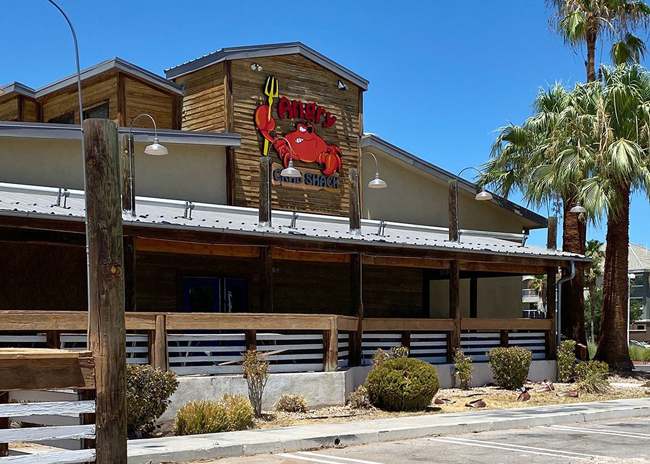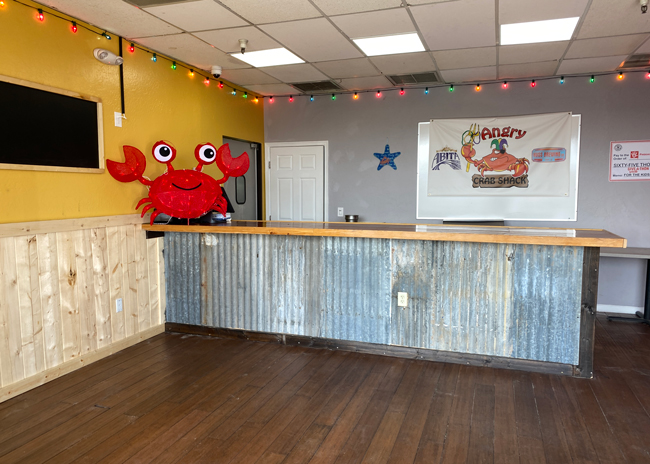Angry Crab Shack is in growth mode, aiming to open 10 new locations this year — three in the first quarter — then 10 to 15 a year starting in 2024. All new locations will be franchised, says Brian Herskovets, director of franchise operations for the 20-unit, Mesa, Ariz.-based chain.
 Brian Herskovets
Brian Herskovets
For these franchises to operate as best as they can, it’s important to have excellent relationships with the franchisees who run them, he says. Here, he shares nine best practices for maintaining great relationships with franchisees.
1. Communicate openly
The number one thing that leads to good franchisee relationships is communication, says Herskovets. It’s important to be honest, he points out, even if a lot of your conversations aren’t easy. If you can’t get comfortable having these talks, he says, “things don’t happen.”
2. Be involved in their lives
Really know your franchisees. What sports do they play? Do they read or play video games? How old are their kids and what do they do for fun? “You need to understand what their lives entail, which helps you understand their business.”
It can be a good idea to keep notes on different franchisees, for a quick read-through before a meeting, but Herskovets takes a more organic approach and makes a conscious effort to remember.
3. Focus on their business
Herskovets does, however, make notes on the business side of things for his franchisees. So if they have goals or changes they’d like to implement, he writes them down, which gives him a kind of to-do list.
 Images courtesy of Angry Crab Shack
Images courtesy of Angry Crab Shack
4. Manage by fact
Herskovets starts by understanding the current facts of a franchisee’s business, then by implementing a plan that addresses their strengths, weaknesses, and opportunities, he says.
“I look at their opportunities, and what they do well. There’s no one better than them to know what’s working and not working,” he says. So to start with, he listens to the franchisee’s analysis of their own business; then he turns to what Angry Crab Shack sees in the numbers. He listens to what the franchisees are hoping for in the future; “then I tell them what I’d like to see the company doing; then we get a plan together of our goals as a collective.”
5. Take away their financial worries
Money is a very sensitive topic, “but we’ve made arrangements to assist with partners to make sure they’re not going under because of us,” Herskovets points out. “It’s not what they’re doing wrong but how can we enhance what they’re doing right.” The Angry Crab Shack model has proved successful in many markets, for may years, he says, “so as long as you’re going by the book, it’s pretty hard to fail. So we might look at where [franchisees] are not to standard.”
Franchisees got into this business, he says, to make money and these are extremely important conversations to have. “They sometimes just need some guidance from me and others on the corporate team. We have people who’ve been in the restaurant industry for 20, 30, years and have a ton of knowledge and are great at talking through a lot of situations.”
6. Bring them onsite
Angry Crab Shack brings new franchisees, and old franchisees on Discovery Days into the corporate office to introduce them to the company’s owners and director of retail operations for the corporate stores “and really get them feeling what drives our company, and what created this,” says Herskovets. “Then we take them to our flagship store and potentially another one, and we’ll eat lunch there so they really get the experience.”

7. Make sure they’re working on their business, not in their business
Franchisees should always be able to view their business from up close and afar, says Herskovets. They should be constantly working six months out and making sure things go as planned, but getting on-time information, too. The company’s restaurant growth platform provides sales numbers and different metrics “to make sure they’re operating on a leaner level, to give that real-time feedback in the moment but also working towards those shorter long-term goals,” he says.
“It’s easy to get lost in the moment of operating a restaurant,” says Herskovets. “So if you can’t see six months down the road and are losing sight of that vision you’re not working on your business. That helps them feel corporate has got their back. That’s just as important to help them get these plans in place.”
8. Use technology wisely
Angry Crab Shack provides as much help with technology as possible and offers CrabLab, a one-stop-shop for video training, development, marketing materials, recipes, standard operating procedures, communications and more.
These tools, Herskovets says, give franchisees “immediate access, instant feedback, to all the data they need.”
“Do we still want that old-school binder on the shelf?” he asks. “Yes, because some of us are old school, but technology is the future and the generations we’re now employing need that now.”
9. Get franchisee buy-in
Angry Crab Shack calls its franchisees “partners” because “they really are partners,” says Herskovets. And because it feels it can learn from its franchisees, as well as them learning from corporate. “We can always get better and that starts with the people in the trenches doing the work,” he says. “It’s good to keep our ears to the ground and listen to the feedback and apply it. And we can let them see we’re listening and trying.”



